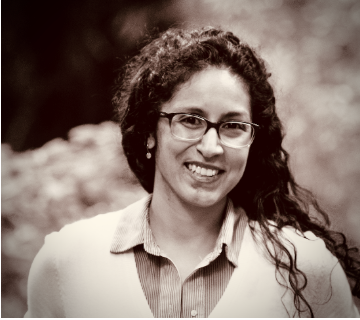Meet Dr. Diana Monsivais
Written by Dr. Angela Gonella in Celebration of National Hispanic Heritage Month

The National Hispanic Heritage Month is annually celebrated from September 15 to October 15 in the United States to recognize the contributions and influence of Latinx to the history, culture, and achievements of the United States. In celebration of Hispanic Heritage Month, Diversity Committee Chair Dr. Angela Gonella sat down with Baylor College of Medicine (BCM) Assistant Professor Dr. Diana Monsivais. She is also the Early Career Investigator representative at the SSR’s Board of Directors.
Dr. Diana Monsivais is an Assistant Professor in the Department of Pathology and Immunology at Baylor College of Medicine (BCM) where she runs a laboratory focused on endometrial biology and female reproductive diseases. Dr. Monsivais was awarded a K99/R00 Award from the NICHD and Next Generation Pregnancy Award from the Burroughs Wellcome Fund to study the role of the endometrium in female reproductive health and pregnancy. She obtained her Ph.D. at Northwestern University in the laboratory of Dr. Serdar Bulun, where she characterized the roles of GTPases and kinases in the development of endometriosis. Dr. Monsivais conducted a postdoctoral fellowship in the laboratory of Dr. Martin Matzuk at BCM, where she gained expertise in the development of genetic mouse models and pregnancy. In her work, Dr. Monsivais has developed mouse models of early pregnancy loss that demonstrate the convergence of the bone morphogenetic protein (BMP) signaling pathway and the hormonal endometrial response during embryo implantation. Future and ongoing studies in her group are combining the power of genetically engineered mice with human translational models to uncover the signaling mechanisms that drive endometrial cell renewal and underpin the biology of early pregnancy loss and endometriosis. Her work focused on endometrial regeneration, stem cells, and endometriosis was recently funded by the NIH. As a member of the graduate faculty at BCM, Diana enjoys teaching and mentoring young scientists in the classroom and in the laboratory.
What is your current position, and what does it entail?
I am an Assistant Professor in the Department of Pathology & Immunology at Baylor College of Medicine. I started my laboratory in 2020 with the goal of studying the regenerative potential of the endometrium. The ultimate goal of my research is to address diseases that affect women’s reproductive health. We use genetic mouse models, human cell cultures, and 3D organoid models to determine the signaling pathways that are abnormal in women experiencing early pregnancy loss, endometriosis, and cancer.
Can you talk a little bit about yourself, where are you from? What first attracted you to the world of science? And how did you get to be in your current position?
I am a first-generation Mexican American born in Chicago and raised partly in Mexico and the US. My parents came to this country in the 1960s for work and to provide their family with a better life and opportunities. Leaving their friends, family and culture must have been so difficult, so I feel incredibly grateful for their sacrifices and the amazing opportunities they gave us.
I was always fascinated by the human body, and fondly remember making intricate models of each organ system using clay and other household items as a middle-school student. My love for biology was cemented in high school when we learned about cellular systems, molecular biology, and genetics.
After college, I obtained a master’s degree in Molecular Biology at Chicago State University, then obtained my Ph.D. in Reproductive Sciences at Northwestern University where I worked with Dr. Serdar Bulun studying estrogen and inflammatory signaling in endometriosis.
As a postdoc, I joined an IRACDA fellowship program at Baylor College of Medicine where I worked with Dr. Martin Matzuk on genetic mouse models for the study of early pregnancy and also taught undergraduates at a local university in Houston, TX. I transitioned to my faculty position in 2020, and am now a mentor to two Ph.D. students, a staff scientist, and a medical fellow; the group is highly talented, extremely motivated, and a pleasure to work with every day.
What are you most excited to do this year?
This year, I am excited to continue establishing my laboratory. I hope to recruit a postdoctoral associate or a staff scientist that can help my group develop and characterize new mouse models and organoid systems for the study of reproduction. This year my daughters will also turn 5 and 18, so I look forward to continuing to see them grow and develop.
Are there ways in which you think your heritage has affected your perspective or career trajectory?
Yes, I think that being Mexican American and a woman in science has always carried a special meaning for me. It is a well-known fact that despite earning PhDs in equal numbers, women represent a smaller fraction of leadership and full professor positions at major medical research institutes. The numbers are even direr for women of underrepresented minority groups. With these statistics in mind, I always felt that the opportunity I was given by my mentors and colleagues to be a part of the scientific research community was a great privilege. Because of this opportunity, I feel that it is my own responsibility to share this space with others who may otherwise feel excluded. Ultimately, as a lab leader, I hope to create a diverse and welcoming laboratory environment and perform high-quality research that will propel my trainees’ career development.
What words of inspiration would you like to share with the future generation of scientists, especially those coming from diverse backgrounds?
The work you do matters. Although a scientific career can be demanding, it will give you the rare privilege to work with excellent colleagues, mentors, and students, all while contributing to a noble cause. Also, remember that everyone deserves a place in science and that diverse teams lead to excellent and impactful research, so persevere and continue moving forward!

